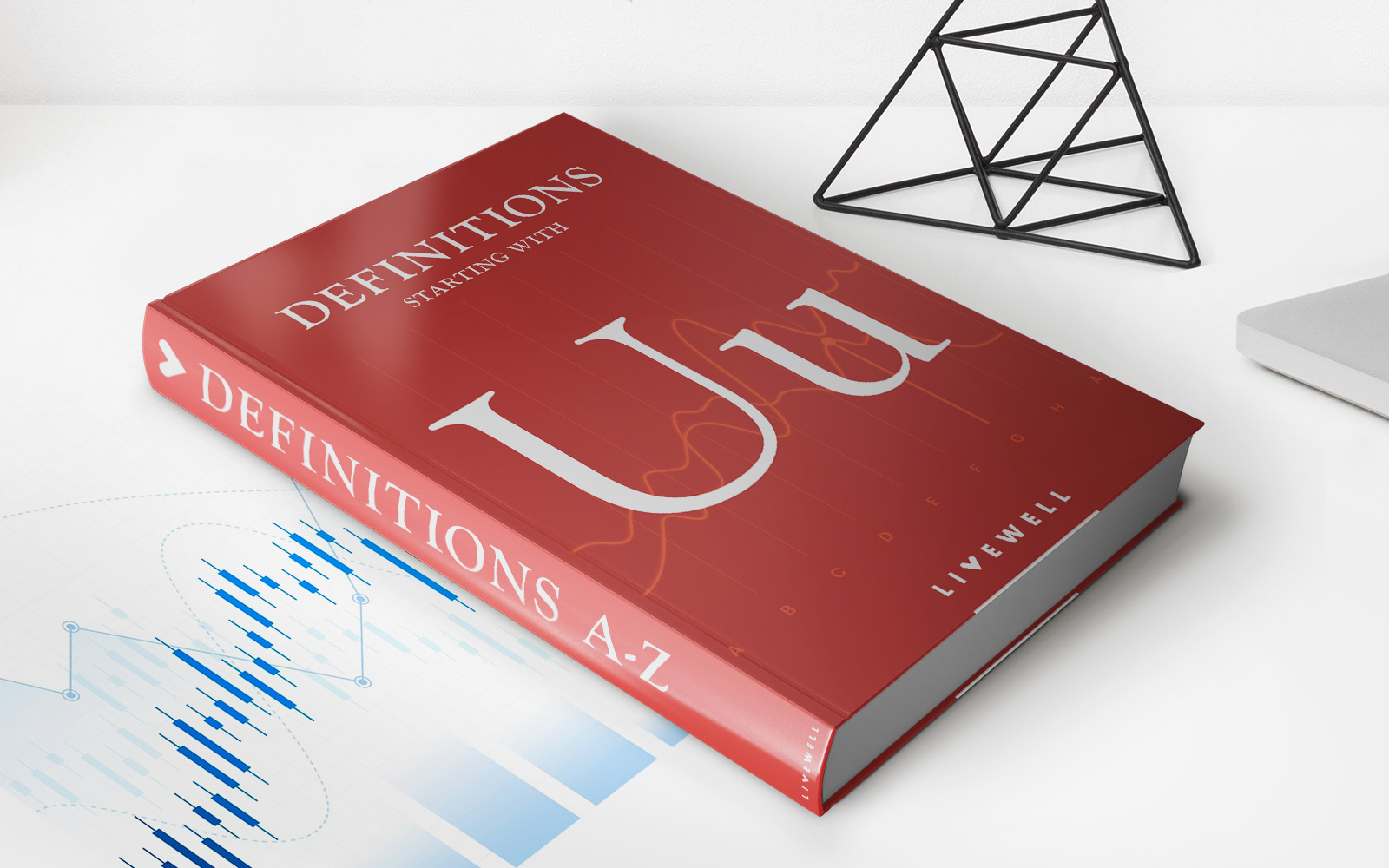

Finance
What Can You Get With An 820 Credit Score
Published: October 22, 2023
Achieve your financial goals with an exceptional 820 credit score. Unlock flexible and affordable finance options today.
(Many of the links in this article redirect to a specific reviewed product. Your purchase of these products through affiliate links helps to generate commission for LiveWell, at no extra cost. Learn more)
Table of Contents
- Introduction
- What is a Credit Score?
- How is a Credit Score Calculated?
- Understanding Credit Score Ranges
- Benefits of Having an 820 Credit Score
- Qualifying for Low-Interest Loans
- Access to Premium Credit Cards
- Higher Chances of Approval for Rental Applications
- Lower Insurance Premiums
- Negotiating Better Terms on Mortgages
- Conclusion
Introduction
Welcome to the world of credit scores, where a three-digit number can make a significant impact on your financial life. A credit score is a numerical representation of your creditworthiness, which lenders use to assess your ability to repay debt. It plays a crucial role in determining the terms and conditions of loans, credit cards, housing rentals, and even insurance premiums.
Having an excellent credit score can unlock a myriad of financial opportunities, giving you access to favorable loan rates, exclusive credit cards, and many other benefits. One such exceptional credit score is 820. An 820 credit score places you among the top borrowers, showcasing your responsible financial habits and demonstrating high levels of trustworthiness to lenders.
In this article, we will explore the benefits of having an 820 credit score, understanding what it means for your financial well-being. Whether you’ve already achieved this impressive credit score or are on a journey to improve your credit, understanding the advantages it brings will offer valuable insights into optimizing your financial life.
What is a Credit Score?
A credit score is a three-digit number that represents your creditworthiness and financial reliability. It is a numerical snapshot of your credit history, indicating how likely you are to repay debts on time. Credit scores are used by lenders, banks, credit card companies, landlords, and insurance providers to evaluate your financial trustworthiness and assess the risk of lending to you.
Credit scores are typically calculated by credit reporting agencies, such as Equifax, Experian, and TransUnion, using complex algorithms that analyze various factors in your credit history. These factors include your payment history, outstanding debt, length of credit history, types of credit accounts, and new credit inquiries.
The most commonly used credit scoring models are FICO® Scores and VantageScores. FICO® Scores range from 300 to 850, with higher scores indicating better creditworthiness. VantageScores range from 300 to 850 as well, but they may have different score ranges for specific industries.
It’s important to note that each lender or organization may have its own criteria for evaluating credit scores. While a high credit score generally signifies good financial health, the specific score requirements for different types of loans or services may vary.
Monitoring your credit score regularly is important to ensure its accuracy and to identify any potential issues or fraudulent activity. You can obtain a free copy of your credit report from each of the three major credit reporting agencies once every 12 months by visiting AnnualCreditReport.com.
Now that we have a basic understanding of what a credit score is, let’s delve into how it is calculated and the range of credit scores you can achieve.
How is a Credit Score Calculated?
Calculating a credit score involves a complex algorithm that takes into account various factors from your credit history. The specific formula used may vary based on the scoring model, such as FICO® Scores or VantageScores. However, the general components and weightings used to calculate credit scores are relatively consistent.
The main factors that impact your credit score calculation include:
- Payment History (35%): Your payment history has the biggest impact on your credit score. Lenders want to know if you’ve consistently made your debt payments on time or if you’ve had late payments, defaults, or collections.
- Amount Owed (30%): The amount of money you owe compared to your overall credit limits, also known as your credit utilization ratio, can significantly impact your credit score. Ideally, you should aim to keep your credit utilization below 30% to maintain a good credit score.
- Length of Credit History (15%): The length of time you’ve had credit accounts, including the age of your oldest account and the average age of all your accounts, plays a role in determining your credit score. Generally, a longer credit history is viewed positively by lenders.
- Credit Mix (10%): Lenders like to see a diverse mix of credit accounts, such as credit cards, loans, and mortgages. Having a variety of credit types can demonstrate your ability to manage different types of debt responsibly.
- New Credit (10%): Opening multiple new credit accounts within a short period may be seen as risky behavior. Each time you apply for new credit, it generates a hard inquiry on your credit report, which can temporarily lower your credit score.
It’s essential to note that improving your credit score takes time. Building a positive credit history through consistent, on-time payments and responsible credit utilization is key. It’s also important to remember that different credit scoring models may have slight variations in how they weigh these factors.
Now that we understand the key factors that influence credit score calculation, let’s explore the different credit score ranges and what they mean for borrowers.
Understanding Credit Score Ranges
Credit scores generally fall into different ranges, which categorize borrowers based on their creditworthiness. While different scoring models and lenders may have variations in the ranges, here is a general overview of credit score categories:
- Poor (300-579): Credit scores in this range are considered poor and may make it challenging to qualify for loans or credit cards. Borrowers with poor credit may face high interest rates and limited borrowing options.
- Fair (580-669): Credit scores in this range indicate a fair credit history. Borrowers in this category may have difficulty getting approved for certain loans or credit cards and may still face higher interest rates and less favorable terms.
- Good (670-739): Credit scores in this range demonstrate good credit management. Borrowers with good credit are more likely to qualify for loans and credit cards and can typically obtain competitive interest rates.
- Very Good (740-799): Credit scores in this range represent a very good credit history. Borrowers in this category are considered low-risk and often qualify for lower interest rates and better loan terms.
- Excellent (800-850): Credit scores in this range are considered excellent and demonstrate exceptional creditworthiness. Borrowers with excellent credit benefit from the best terms, lower interest rates, and may have access to premium credit cards.
It’s important to remember that credit score ranges are not fixed and can vary among different lenders or scoring models. Additionally, other factors, such as income and employment history, may also influence a lender’s decision.
Now that we have a good understanding of credit score ranges, let’s explore the specific benefits of having an 820 credit score.
Benefits of Having an 820 Credit Score
Having an 820 credit score puts you in an elite category of borrowers with excellent creditworthiness. This high credit score comes with numerous benefits and opens up a world of financial opportunities. Let’s explore some of the advantages of having an 820 credit score:
- Qualifying for Low-Interest Loans: With an 820 credit score, you are likely to qualify for loans with the lowest interest rates and most favorable terms. Lenders see you as a low-risk borrower and are more willing to offer you competitive loan options.
- Access to Premium Credit Cards: Credit card companies often reserve their premium cards with exclusive rewards, perks, and higher credit limits for individuals with excellent credit scores like 820. Having access to these premium credit cards can provide additional benefits, such as travel rewards, cashback, and luxury lifestyle perks.
- Higher Chances of Approval for Rental Applications: When applying for a rental property, landlords frequently run credit checks to assess your financial responsibility. With an 820 credit score, you have a better chance of being approved for your desired rental, as landlords see you as a reliable tenant who will pay rent on time.
- Lower Insurance Premiums: Insurance companies often consider credit scores when determining premiums. With an 820 credit score, you may qualify for lower insurance premiums on auto, home, or other types of insurance.
- Negotiating Better Terms on Mortgages: When applying for a mortgage, a high credit score like 820 can give you leverage to negotiate better interest rates and terms with lenders. This can result in substantial savings over the life of the loan.
These are just a few of the many advantages of having an 820 credit score. It’s important to remember that maintaining a high credit score requires responsible financial habits and consistent adherence to repayment schedules.
Now that we’ve explored the benefits of having an 820 credit score, it’s clear that achieving and maintaining an excellent credit score can greatly impact your financial well-being.
Qualifying for Low-Interest Loans
One of the significant advantages of having an 820 credit score is the ability to qualify for low-interest loans. When you have an excellent credit score, lenders see you as a low-risk borrower who is highly likely to repay the loan on time. As a result, they are more willing to offer you loans with the most favorable interest rates and terms.
With a high credit score, you have demonstrated consistent and responsible financial behavior, which makes lenders confident in your ability to manage debt. This puts you in a strong negotiating position when seeking new loans or refinancing current loans.
Low-interest loans can be beneficial in several ways:
- Reduced Interest Costs: By obtaining a loan with a low-interest rate, you can save a significant amount of money over the life of the loan. Lower interest costs mean more of your monthly payments go towards paying down the principal balance rather than paying interest.
- Lower Monthly Payments: When your loan has a low-interest rate, your monthly payments are typically lower. This can free up more of your monthly budget for other expenses or savings.
- Shorter Repayment Period: With lower interest rates, you may be able to afford higher monthly payments. This allows you to pay off the loan faster, saving you even more money in interest charges over time.
- Opportunity for Other Investments: With lower monthly payments and reduced interest costs, you may have extra funds available to invest in other areas, such as additional real estate, stocks, or retirement accounts.
When you have an 820 credit score, lenders compete for your business, offering you the most favorable loan terms available. However, it’s still important to compare offers from different lenders to ensure you’re getting the best deal. Shopping around, analyzing interest rates, and understanding any additional fees or charges associated with the loan can help you make an informed decision.
Remember, maintaining a high credit score requires responsible financial habits, including making all loan payments on time and keeping your credit utilization low. By continuing to demonstrate good credit behavior, you can continue to qualify for low-interest loans in the future.
Next, let’s explore the benefits of having an 820 credit score in relation to accessing premium credit cards.
Access to Premium Credit Cards
Having an 820 credit score opens the door to a world of premium credit cards that offer exclusive rewards, perks, and higher credit limits. Credit card companies view individuals with excellent credit scores as responsible borrowers who are likely to manage their credit wisely, making them ideal candidates for premium credit cards.
Premium credit cards often come with a range of benefits that can enhance your financial experience. Here are some advantages of having access to premium credit cards:
- Generous Rewards Programs: Premium credit cards typically offer enhanced rewards programs, allowing you to earn points, cashback, or travel miles at an accelerated rate. These rewards can be redeemed for travel, hotel stays, merchandise, or statement credits, providing you with valuable perks for your spending.
- Luxury Travel Perks: Many premium credit cards provide luxury travel benefits, such as airport lounge access, complimentary hotel night stays, travel insurance coverage, and concierge services. These perks can make your travel experiences more convenient and enjoyable.
- Exclusive Consumer Protections: Premium credit cards often have additional consumer protections, such as extended warranty coverage, purchase protection, and price protection. These features can provide you with added peace of mind when making large purchases.
- Higher Credit Limits: With an excellent credit score, credit card issuers are more likely to offer higher credit limits on premium cards. This gives you greater purchasing power and flexibility when managing your expenses.
- Personalized Customer Service: Premium credit cardholders often receive dedicated customer service with access to premium support lines and personalized assistance. This can be particularly helpful when resolving issues or inquiries regarding your credit card account.
It’s important to carefully review the terms and conditions, fees, and annual costs associated with premium credit cards before applying. While the benefits can be significant, it’s essential to ensure that the rewards and perks align with your spending habits and financial goals.
Remember to use your premium credit card responsibly by paying your balance in full each month and avoiding unnecessary debt. This will help you continue to maintain and build a strong credit history.
Next, let’s explore how an 820 credit score can increase your chances of approval for rental applications.
Higher Chances of Approval for Rental Applications
Having an 820 credit score can significantly improve your chances of having rental applications approved by landlords. When you apply for a rental property, landlords often conduct credit checks to assess your financial responsibility and determine whether you are a reliable tenant.
A high credit score like 820 indicates that you have a strong track record of managing your financial obligations. Landlords see this as a positive factor when evaluating rental applications. Here are some reasons why having an excellent credit score increases your chances of being approved:
- Financial Responsibility: Landlords view a high credit score as a sign of financial responsibility. It demonstrates your ability to make payments on time and manage your debts effectively, providing assurance that you are likely to pay rent promptly.
- Lower Risk: An 820 credit score indicates that you are a low-risk tenant in terms of defaulting on rental payments. Landlords prefer tenants who have proven their creditworthiness, reducing the risk of potential income loss due to missed or late rental payments.
- Competitive Edge: In competitive rental markets, having an excellent credit score can give you a competitive edge over other applicants. Landlords may favor applicants with higher credit scores as they are seen as more reliable and less likely to cause issues related to the payment of rent.
- Negotiating Power: With a good credit score, you may have more negotiating power when discussing lease terms with the landlord. Landlords may be more willing to consider accommodating certain requests or offer more favorable lease terms for tenants with proven financial responsibility.
While credit scores are an important consideration for landlords, they typically take into account other factors, such as income, rental history, and employment stability. It’s crucial to present a well-rounded rental application that highlights your financial stability, references, and any other relevant information that can strengthen your case as a responsible tenant.
Even with an 820 credit score, it’s essential to be prepared to provide any additional documentation or information that may be required during the rental application process. This can include proof of income, references, or a rental history report.
Now that we have explored the benefits of an 820 credit score for rental applications, let’s examine another advantage – lower insurance premiums.
Lower Insurance Premiums
Having an 820 credit score can lead to lower insurance premiums across various types of insurance policies. Insurance companies often consider credit scores as a factor in determining the level of risk associated with insuring an individual. As a result, individuals with higher credit scores, such as 820, may enjoy reduced insurance premiums.
Here are some reasons why having an excellent credit score can result in lower insurance premiums:
- Perceived Responsibility: Insurance providers view individuals with high credit scores as responsible and less likely to file insurance claims. As a result, they may offer lower premiums as a reward for this perceived responsibility.
- Historically Lower Claims: There is statistical evidence to suggest that individuals with better credit scores tend to file fewer insurance claims. Insurance companies use this data as a basis for determining the risk associated with insuring an individual and adjust premiums accordingly.
- Ability to Pay Premiums: An individual with a high credit score demonstrates a strong financial standing and the ability to meet financial obligations, including insurance premium payments. Insurance providers may consider this reliability and offer lower premiums as a result.
- Insurance Score: Insurance companies often use a combination of credit-based factors and other insurance-related information to calculate an insurance score. Individuals with high credit scores usually have higher insurance scores, which can lead to lower premiums.
- Bundling Discounts: Insurance providers often offer discounts to customers who bundle multiple insurance policies, such as auto and home insurance. With a high credit score, you are more likely to qualify for these bundling discounts, resulting in overall lower insurance premiums.
It’s important to note that the use of credit scores in insurance premium calculations is subject to state laws and regulations. Not all states allow or regulate the use of credit-based insurance scores in determining premiums. Therefore, it’s crucial to check the laws in your specific jurisdiction to understand how credit scores may impact your insurance premiums.
As with other financial matters, it is recommended to periodically review your insurance coverage, compare quotes from different providers, and ensure that you are getting the best rates and coverage for your needs.
Next, let’s discuss how an 820 credit score can help you negotiate better terms on mortgages.
Negotiating Better Terms on Mortgages
Having an 820 credit score can provide you with significant advantages when it comes to negotiating better terms on mortgages. A high credit score indicates to lenders that you have a strong track record of managing your finances responsibly, making you an attractive borrower. This can potentially result in more favorable terms and conditions for your home loan.
Here are some benefits of having an 820 credit score when negotiating mortgages:
- Lower Interest Rates: Lenders offer lower interest rates to borrowers with excellent credit scores. With an 820 credit score, you’re likely to qualify for the most competitive rates available. This can save you thousands of dollars in interest over the life of your mortgage.
- Reduced Mortgage Insurance Costs: If your down payment is less than 20% of the home’s purchase price, you may be required to pay for private mortgage insurance (PMI). However, individuals with high credit scores like 820 may receive lower PMI premiums compared to borrowers with lower credit scores.
- Favorable Loan Terms: With an excellent credit score, lenders may be willing to offer more favorable loan terms, such as a longer repayment period or a lower down payment requirement. This flexibility can make homeownership more accessible and affordable.
- Higher Loan Amounts: Lenders may be more willing to approve larger loan amounts for borrowers with high credit scores. This can increase your purchasing power and potentially allow you to buy a more desirable property.
- Streamlined Approval Process: Borrowers with exceptional credit scores often experience a smoother and quicker mortgage approval process. Lenders have more confidence in your ability to repay the loan, which can result in faster loan processing and less paperwork.
It’s important to note that while an excellent credit score opens the door to better mortgage terms, other factors are also considered during the mortgage application process. Lenders typically assess your income, employment history, down payment amount, and overall financial profile before finalizing the loan terms.
Before obtaining a mortgage, it’s advisable to shop around and compare offers from multiple lenders. Even a small difference in interest rates or fees can have a significant impact on your long-term savings. By leveraging your high credit score, you can negotiate with lenders to secure the most advantageous mortgage terms for your financial situation.
Now that we’ve explored the benefits of an 820 credit score when negotiating mortgages, let’s summarize what we’ve discussed.
Conclusion
Having an 820 credit score can provide you with a multitude of benefits and open doors to various financial opportunities. This high credit score signifies your responsible financial habits and demonstrates a high level of trustworthiness to lenders, landlords, and insurance providers.
With an 820 credit score, you are likely to qualify for low-interest loans, granting you access to favorable rates and terms. You may also gain eligibility for premium credit cards that offer exclusive rewards, perks, and higher credit limits. Landlords are more inclined to approve rental applications from individuals with excellent credit, increasing your chances of securing your desired rental property. Additionally, you may enjoy lower insurance premiums across different insurance policies, resulting in significant savings over time. When it comes to mortgages, an 820 credit score can empower you to negotiate better terms, including lower interest rates and more favorable loan conditions.
Maintaining an excellent credit score requires responsible financial habits, such as making timely payments, keeping credit utilization low, and managing debt effectively. Continuous monitoring of your credit report and staying proactive in resolving any inaccuracies or issues is also crucial.
Remember, while an 820 credit score provides numerous advantages, other factors may also impact lending decisions, rental applications, insurance premiums, and mortgage terms. It’s important to consider your overall financial health and engage in thoughtful financial planning to maximize the benefits of your excellent credit score.
In conclusion, an 820 credit score is a significant accomplishment that can enhance your financial well-being and provide you with opportunities for a brighter future.














